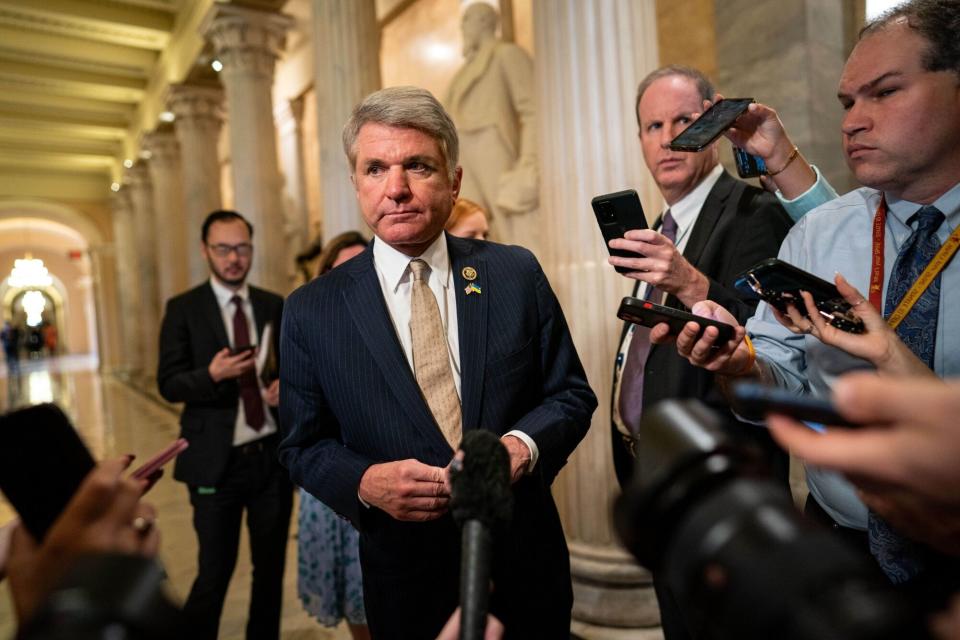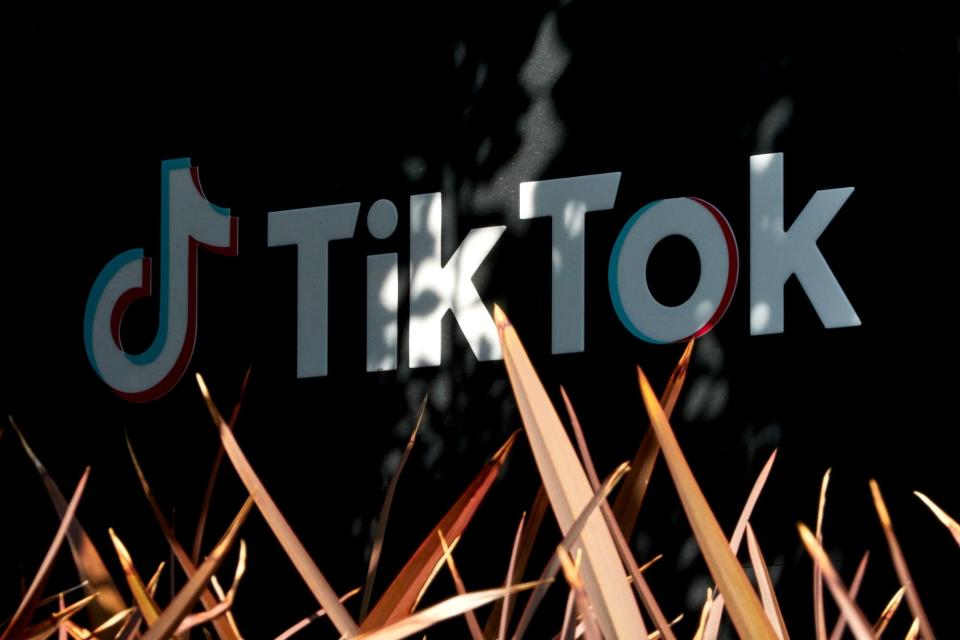TikTok Challenges Congress's Secrecy on Alleged Security Threat
(Bloomberg) -- US lawmakers raced to pass a TikTok ban following a series of briefings that remain classified. Now, the app’s Chinese owner is seizing on that secrecy in its high-stakes bid to overturn the new law.
Most Read from Bloomberg
‘I Live in Hell’: Anti-Growth Fervor Grips US South After Pandemic Boom
What to Know About the Deadly Flesh-Eating Bacteria Spreading in Japan
Nvidia’s 591,078% Rally to Most Valuable Stock Came in Waves
Nvidia Becomes World’s Most Valuable Company as AI Rally Steams Ahead
Stocks Rise as Bullish Nvidia Call Boosts AI Trade: Markets Wrap
By June 20, ByteDance Ltd must lay out its reasons for bringing the lawsuit. One of its main arguments is that Congress never provided public proof of a national security threat to justify a ban that the Beijing-based company says would infringe the free-speech rights of TikTok’s 170 million US users.
Calling the risks cited by lawmakers “hypothetical,” ByteDance said in its initial filing last month “those speculative concerns fall far short of what is required when First Amendment rights are at stake.” The case could make its way to the Supreme Court, which has traditionally favored free-speech arguments.
ByteDance’s challenge poses a test of whether US agencies will divulge secrets shared with Congress to defend the new law, which calls for banning TikTok unless it’s sold. The company is bracing for a fight, with TikTok Chief Executive Officer Shou Chew promising users that “we’re not going anywhere.”
US Senator Richard Blumenthal disputed the company’s contention, saying the burden of proof falls to TikTok. “They’re asking to invalidate an act of Congress, acts of Congress are presumed valid,” Blumenthal, a former US attorney, said in an interview.
“They’re just a platform. They’re not expressing anything, their users are,” the Connecticut Democrat said. “What standing do they have to raise the rights of their users?”
TikTok has been targeted by Washington policymakers for years over concerns that China could access US user data and use the popular video-sharing app to disseminate propaganda, claims repeatedly rejected by company executives and officials in Beijing.
Calls for a ban gained momentum after Hamas — designated a terror group by the US and the EU — attacked Israel on Oct. 7. The platform drew criticism from lawmakers and industry leaders who said it was amplifying inflammatory posts, including antisemitic content.
Officials from US intelligence agencies held classified briefings for lawmakers to buttress public testimony from FBI Director Christopher Wray on TikTok’s security risks. Revelations from those meetings included that some senior ByteDance executives had overlapping responsibilities with the Chinese Communist Party, according to a person with knowledge of the briefings.
Texas Republican Michael McCaul, who chairs the House Committee on Foreign Affairs, likened the app to a Chinese spy balloon on a phone. “It can monitor your keystrokes, it can monitor your web browser,” he said in an interview.
Joel Thayer, a Republican lawyer who pushed for the legislation, said the briefings were key in moving lawmakers who were “lukewarm” to taking action. “It wasn’t for past things,” said Thayer, president of the Digital Progress Institute. “It had to do with something happening now, that TikTok is doing.”
Blumenthal and other lawmakers have urged declassifying some of what they learned in closed-door meetings with US intelligence officials. That would require the Justice Department and Office of the Director of National Intelligence to redact details that could expose sources and methods.
The Justice Department said in a May 17 court motion that it was evaluating the need to submit papers containing classified material along with other evidence. An ODNI spokesperson confirmed the agency’s engagement with Congress on the issue.
In a separate statement, the Justice Department said it looked forward to defending the law. “This legislation addresses critical national security concerns in a manner that is consistent with the First Amendment and other constitutional limitations,” it said.
Paul Stephan, a University of Virginia law professor, said he doubted that a judge would compel the US to divulge national secrets in this case.
“It’s inconceivable that a court would force them to release anything,” Stephan said in an interview. “I could easily see the Justice Department pushing the court rather than surrendering on this point quickly.”
TikTok has sought to ease data concerns by working with Oracle Corp. to shield American users’ information in a $2 billion effort called Project Texas. But the initiative still left TikTok’s algorithm, source code and back-end support in China, according to Senate Intelligence Committee Chairman Mark Warner, who supported forcing ByteDance to sell.
Extensive lobbying on Capitol Hill by Chew and dozens of content creators failed to sway lawmakers, who passed the divest-or-ban bill in April as part of a larger foreign aid bill.
In its lawsuit, TikTok rejected selling to a US-approved buyer, calling divestment commercially and technologically impossible. The Chinese government, it added, would never allow the sale of the recommendation algorithm that’s “key to the success of TikTok in the United States.”
Read more: What a TikTok Ban in the US Would Mean for the App: QuickTake
A group of creators has also sued the US government over alleged free-speech violations, and the company is helping fund their efforts. In a statement, TikTok said it was the government that needed to prove that the law is constitutional, reiterating its argument that Congress failed to show sufficient justification.
“We will not be litigating the matter in the press and we are confident the facts and the law are on our side,” spokesperson Alexander Haurek said in a statement.
Lawmakers who backed the divest-or-ban law said in interviews that openly available information confirms the app’s risks. Members of the powerful House Foreign Affairs Committee remain confident that the public record proves the need for divestiture without the release of classified material, according to a congressional aide who spoke on condition of anonymity.
In 2022, an Australian-US cybersecurity firm found that TikTok carried out “excessive data harvesting” on users’ phones, checked device location at least once an hour and had code that collected handset and SIM-card serial numbers. At the time, TikTok rejected the findings and said the report “misstates the amount of data we collect.”
On the broader free-speech question at the heart of the case, Stephan said that users have other social-media venues to express their views.
“The First Amendment is protective of speaker’s rights,” he said. “Right of access to a particular platform is kind of problematic when there are many other alternative platforms.”
--With assistance from Steven T. Dennis, Billy House, Emily Birnbaum and Sabrina Willmer.
Most Read from Bloomberg Businessweek
Google DeepMind Shifts From Research Lab to AI Product Factory
Coke—and Dozens of Others—Pledged to Quit Russia. They’re Still There
Trump’s Planned Tariffs Would Tax US Households, Economists Warn
©2024 Bloomberg L.P.

 Yahoo News
Yahoo News 


